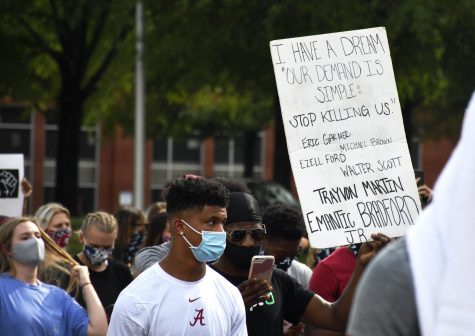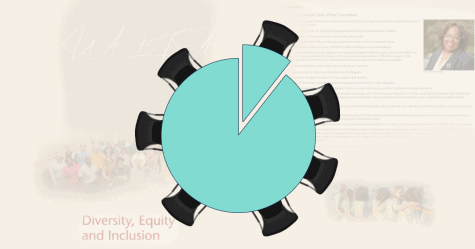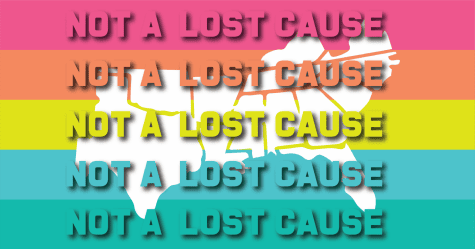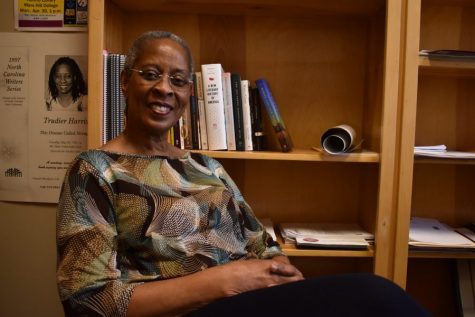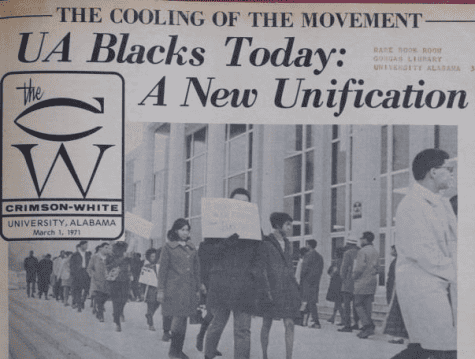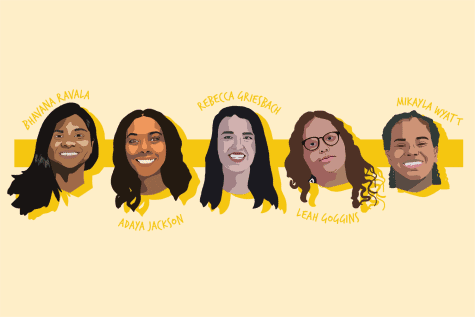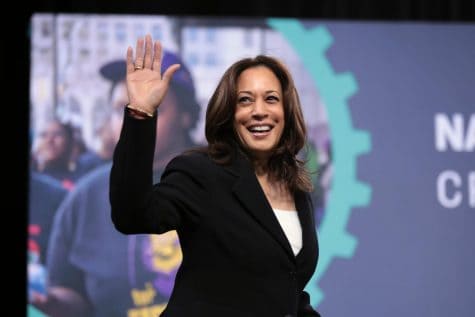Opinion | No, we don’t need a white history month
And suggesting it is just ignorant.
Read more from our Black History Month Edition:
Every February brings a flurry of social media posts and lectures, movie screenings and history lessons. Each Black History Month, Black people enthusiastically welcome the change of the calendar, the arrival of the one month in the year dedicated to celebrating Black achievement.
And after 2020, this February couldn’t come soon enough. The summer saw a peak for Black Live Matter demonstrations as people took to the streets in protest of the police killings of George Floyd, Breonna Taylor, Ahmaud Arbery and Rayshard Brooks. Protests in major cities sparked change and recognition of police brutality, but at a tremendous cost. After a traumatizing year of watching Black people being murdered on video, it’s relieving to have some time to celebrate and honor Black lives as opposed to mourning the loss of them. This year’s Black History Month is more than a reminiscent celebration of Black culture. It’s a reminder that in ignoring the value of Black lives, we risk throwing racial justice and healing by the wayside.
Black History Month, which initially began as “Negro History Week,” was created around the mid-1920s. Its popularity didn’t take off until the 1960s, when the study and celebration of Black History Month became much more prominent among young people on college campuses. Black History Month was not recognized as an official month of celebration until 1976 when President Gerald Ford called upon the nation to “seize the opportunity to honor the too-often neglected accomplishments of Black Americans in every area of endeavor throughout our history.” Celebrating Black History Month is a chance for Black people to understand the value and worth our culture has added to this society after generations of being told we are worthless.
As the University’s administration began to announce partnerships with Black organizations on campus to host a series of fun and educational events in celebration of Black History Month, comments started appearing on platforms such as Instagram and Facebook suggesting that the nature of these events are divisive, along with expressions of “white pride.” Some of which even went far enough to compare Black History Month to the suggestion of a “White History Month.”
Although these comments may sound outrageous, Black students can attest that this is not a new argument to arise within society or even on this campus. Suggestions for a white history month arise each year following the argument that white people should be able to express “white pride” and celebrate their own white history month since everyone is equal. Other arguments include doing away with Black History Month entirely and tucking Black history away in some cobwebbed corner of American history. Although some may note these suggestions as fair, progressive or equitable, in reality, they are incredibly ignorant, insensitive and racist.
It is critical to never forget that Black people were tortured for centuries as a result of racial warfare. Historians report the number of people to be transported or killed via the Transatlantic Slave Trade to be about 60 million people from the 16th century to the 19th century.,
“Black and brown people were ripped from their homes, put on land that wasn’t theirs, forced to learn culture and religion that wasn’t theirs, forced to wear clothing that wasn’t theirs, forced to build homes, schools and a white house that wasn’t theirs,” said Cameron Carazo, a junior majoring in advertising. “So why can’t we have a month that is ours? A month that allows us to celebrate us for who we’ve become despite the obstacles that were thrown our way.”
The diverse cultures, traditions and languages of Black and African people were demonized and lost because of this. Tara Mock, an assistant professor in the Honors College with a PhD in African American and African Studies, concurred, noting especially that Black history is often ignored in teaching of American history.
“Many [Black] stories were largely forgotten or otherwise excluded from the national narrative, thus, the Month’s greatest significance lies in its focus on the achievements of Black Americans whose accomplishments often go missing or are unheralded in historical and contemporary discourses and practices,” Mock said.
Additionally, the gruesome nature of slavery has created intergenerational trauma within Black communities at astounding rates. This trauma still affects Black people today socioeconomically and politically.
With all of that being said, Black History Month isn’t meant to discourage or oppress white people, but to encourage and uplift Black people in equity. For many people, Black History Month is a time where Black people of all identities have the opportunity to explore those identities and define their worth. Carazo discussed how Black History Month has helped her take pride in her identity, providing her with confidence and fortitude.
“Growing up as an Afro-Latina, I always felt stuck between two identities,” Carazo said. “This idea that I had to belong to either-or created a strong identity crisis in my early years. Black history Month allowed me to further explore my identity through historical context.”
Additionally, in many education systems, Black history is significantly undertaught and when it is, the accomplishments and historical contributions of Black people are further overshadowed by the history of slavery. Malea Benjamin, a freshman majoring in political science and communication studies, attended high school in Pell City, Alabama, where she said Black History Month was ignored.
“Black History Month wasn’t acknowledged by the school at all,” Benjamin said. “I had to request that the teachers do something for Black History Month and when I did, they claimed they had no need to because they already mentioned a few Black people in our history classes.”
In her sophomore and senior years of high school, Benjamin said she was finally allowed to decorate the hallway with themes to celebrate the month, but still faced adversity.
“Even then, some of the pictures I put up were ripped off by other students,” Benjamin said.
Benjamin maintained that Black history is a necessary part of a complete education.
“It’s important because it can make Black students feel heard, seen, and appreciated,” she said. “One of the first steps to solving the issue of racism is by confronting it head on and acknowledging the wrongs done to Black americans and how we’ve overcome.”
Black History Month reminds us that Black history does not begin and end with slavery or our fight for civil rights in the states. Our suffering does not define who we are, nor does the adversity we face. Our culture, inventions, accomplishments and accolades do.
“I do think that the media, in particular, has a way of lowlighting moments of prolonged Black suffering as a placeholder for the ‘Black experience,’” Mock said. “While the civil rights and Black power movements and slavery are important moments in America history, focusing only on Black trauma limits our understanding of the diversity and depth of the global Black experience.”
Furthermore, dedicating a month to white people further devalues the voices of Black people.
“Every month is white history month,” Mock said. “As a society we celebrate the histories, experiences, and accomplishments of white people every single day. The suggestion that ‘White History Month’ be established disregards the fact that a deeply-entrenched celebration of whiteness lives within the day-to-day existences of most Americans. It manifests itself in the courses offered, the required readings and whose voices are privileged.”
Our history and culture is dominated by the presence and accomplishments of white people. White people are the default group being represented in our media, public offices and job forces, while Black people are wildly underrepresented in every field.
In celebrating Black History Month, we shine a light on Black people in every field and bring those figures and their accomplishments to the table to be recognized. It isn’t about pushing anyone aside. It’s about giving the underrepresented their due.
During Black History Month, there are many ways to be an ally. But the most beneficial way is to never stop learning. Make an effort to learn about some Black innovators or trailblazers who have influenced your life. Seek out stories of Black innovation in your interests, courses of study or vocation. Diversify your support for Black people of all identities and see us as individuals rather than a collective group by remembering the concept of intersectionality. Support Black businesses and nonprofit organizations helping Black people by boosting their platforms and supporting them financially. Recognize your privilege and speak up when witnessing racism or injustice against Black people.
But most importantly, continue to extend your support long after Black History Month is over.




